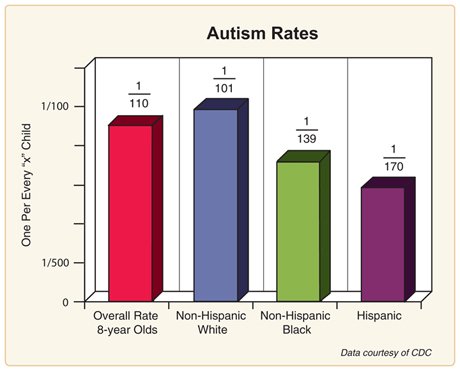Can a child with autism receive Social Security disability benefits?
 The parents of an autistic child recently asked me whether their child could be eligible to receive Social Security disability benefits. Generally, autism qualifies as a disability for Social Security purposes. Whether a specific child qualifies, however, depends upon the severity of the child’s condition.
The parents of an autistic child recently asked me whether their child could be eligible to receive Social Security disability benefits. Generally, autism qualifies as a disability for Social Security purposes. Whether a specific child qualifies, however, depends upon the severity of the child’s condition.
The Social Security Administration’s definition of the term “disability,” for children under age 18, is “a medically determinable physical or mental impairment or combination of impairments that causes marked and severe functional limitations, and that can be expected to cause death or that has lasted or can be expected to last for a continuous period of not less than 12 months.” Autism, or “Autistic Disorder” as it is called by the Social Security Administration (“SSA”), appears on the SSA’s Listing of Impairments. As the SSA puts it, the Listing of Impairments “describes, for each major body system, impairments considered severe enough” to satisfy the SSA’s definition of the term “disability.”
Listing 112.10 is “Autistic Disorder and Other Pervasive Developmental Disorders,” which are described as “[c]haracterized by qualitative deficits in the development of reciprocal social interaction, in the development of verbal and nonverbal communication skills, and in imaginative activity.” According to this entry in the Listing of Impairments, the “required level of severity” for an autistic child to qualify for disability benefits is met when the child exhibits: (a) qualitative deficits in the development of reciprocal social interaction; (b) qualitative deficits in verbal and nonverbal communication and in imaginative activity; (c) a markedly restricted repertoire of activities and interests; and (d) for “older infants and toddlers (age 1 to attainment of age 3), resulting in at least one of the appropriate age-group criteria in paragraph B1” of Listing 112.02; “or, for children (age 3 to attainment of age 18), resulting in at least two of the appropriate age-group criteria in paragraph B2 of” Listing 112.02.
The SSA applies a five-step disability analysis to make the determination of whether someone is officially disabled. Although autism appears on the Listing of Impairments, the SSA will still require that documentation be submitted as part of an application for disability benefits. Additionally, the SSA may require that an applicant receive an independent medical examination.
Parents of autistic children can encounter problems applying for Social Security disability benefits on behalf of their children, even though autism appears on the Listing of Impairments. In some cases, the SSA denies such applications. If you are the parent or guardian of an autistic child and have questions, or if the SSA has denied an application for benefits on behalf of your child, then you should talk with an attorney who focuses on Social Security disability issues. Contact the Law Offices of John T. Nicholson today to schedule free consultation.


Recent Comments